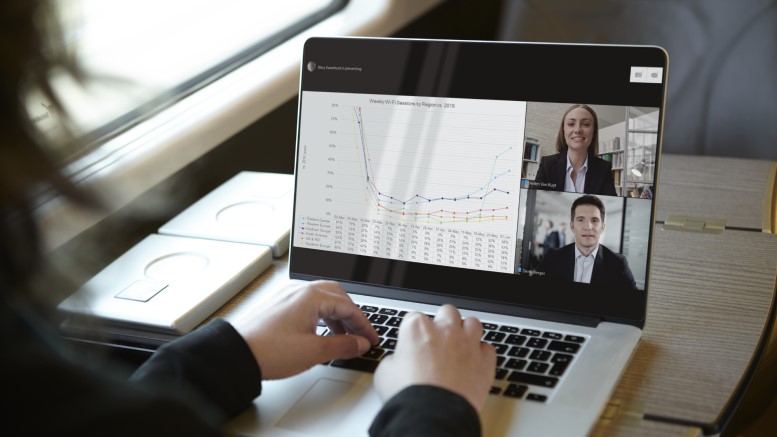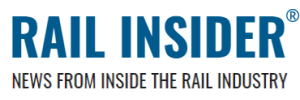
One measure of how public transport is recovering around the world after the lockdown caused by the Coronavirus (COVID-19) pandemic is to track how passengers are using Wi-Fi as they travel.
Icomera, a global provider of mobile Internet connectivity for public transport, has been logging passenger Wi-Fi usage levels from 30,000+ trains, trams, buses and coaches across Europe and North America to measure public transport’s rate of recovery as COVID-19 restrictions are eased.
As expected, all regions saw a dramatic drop-off in weekly passenger Wi-Fi usage through March -tracked as a percentage of usage levels in the corresponding weeks in 2019 – reaching their respective low points between late March and late April.

While all regions have clearly felt the impact, the session volume data illustrates that some fell further than others, and the subsequent recovery rates vary considerably:
- In Eastern Europe, passenger Wi-Fi usage has currently made a +54 percentage point recovery from its lowest point (4%), to now sit at 58% of its 2019 levels;
- Western Europe has made an 30 percentage point recovery to 43%;
- Northern Europe (excluding the United Kingdom and the Republic of Ireland) is up 14 percentage points to 28%;
- North America is up 12 percentage points to 18%;
- The United Kingdom and the Republic of Ireland are up 5 percentage points to 12%;
- Southern Europe is up 9 percentage points to 11%.
Eastern Europe has experienced a positive step change in recent weeks, with many restrictions in the region being lifted during the weeks of 25 May and 1 June. Western Europe is also showing a gradual recovery from a comparatively less impacted position.
Some regions are only now seeing the passenger Wi-Fi usage levels that Northern and Western Europe saw at their lowest points. The United Kingdom and the Republic of Ireland are experiencing the slowest return, while Southern Europe is still feeling the after-effects of the toughest lockdowns and is climbing back from the heaviest reduction in passenger Wi-Fi usage.
Public transport has undoubtedly been hit hard by the COVID-19 pandemic. It will have to overcome many challenges on its journey back to pre-COVID usage levels and, beyond that, to resume the zero-carbon transition – shifting society’s travel habits back towards sustainable, green mobility.

Icomera’s chief executive officer Magnus Friberg said: “The industry has to restore passenger confidence. We’re seeing a new focus for passenger information channels – such as Wi-Fi portals – communicating the onboard safety measures in place or providing real-time updates on service timetables and passenger loads.
“Operators are also trialling systems that mitigate the risks, such as thermal imaging cameras, face mask detection systems, and ultraviolet (UVC) disinfection lights.
“The value of being able to reliably and securely transmit the data that all these systems generate and utilise, to and from the vehicle in real-time, cannot be overstated. Fast and appropriate responses based on this data will be essential for protecting passengers and controlling the spread of the virus.”
A wholly owned subsidiary of Engie Solutions, itself part of French energy conglomerate Engie, Icomera is headquartered in Gothenburg, Sweden, with main offices in the United Kingdom, Germany, France, Italy, the United States and Canada.


Be the first to comment